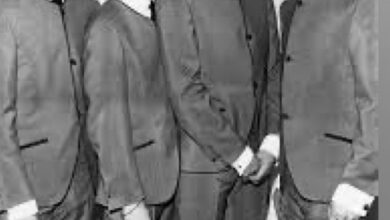Behind the Music: Rumors of Rush Band’s Breakup Fueled by Internal Strife”

For decades, Rush has been celebrated not only for their pioneering sound and musical complexity but also for the deep bond seemingly shared by its members—Geddy Lee, Alex Lifeson, and the late Neil Peart. But recent rumors swirling in fan forums and music circles suggest that the legendary progressive rock trio may have fractured long before Peart’s death in 2020—and that the real story behind the band’s unofficial dissolution may be one of simmering tensions and creative disagreements.
A Brotherhood or a Business Arrangement?
Rush’s image was always rooted in brotherhood. Interviews showcased a tightly-knit unit that eschewed typical rock star drama. However, anonymous sources close to the band have recently hinted at a very different picture. Whispers of creative control disputes between Lee and Lifeson, and philosophical clashes with Peart—especially during the making of Clockwork Angels—paint a portrait of a band increasingly held together by professionalism, not passion.
Fans were led to believe the group disbanded after Peart’s retirement due to health issues and his eventual death. But those close to the inner circle claim otherwise: that internal strife had already led to disengagement years before the final tour. Tensions over the direction of the band, touring schedules, and even political differences reportedly caused prolonged silences between band members.
The Peart Paradox
Neil Peart, the reclusive and philosophical lyricist of the group, was known for his distaste for fame and public attention. In his later years, he reportedly became increasingly disenchanted with the music industry and more rigid about the type of music Rush should create. Sources allege that his intellectual rigidity began to clash with Lee’s desire to experiment with new sonic directions and Lifeson’s push for a looser, more spontaneous sound.
According to one former crew member, “By the end, Neil wasn’t just tired—he was frustrated. He felt like he was being dragged along. He didn’t want another tour, another album. He wanted a legacy, not another paycheck.”
A Silent Agreement to Walk Away
Rather than risk tarnishing their brand with a public breakup or bitter fallout, Rush may have simply opted for a “quiet divorce.” The band stopped performing, citing Peart’s health, and faded away without an official statement of disbandment. Yet, even now, with rumors of potential reunions or tributes circulating, neither Lee nor Lifeson has fully committed to reviving the brand—and insiders say it’s because too many unresolved issues remain between the surviving members.
Legacy vs. Truth
The idea of Rush breaking up due to internal discord is difficult for fans to accept. The band symbolized unity, intellect, and artistic integrity in a music world dominated by egos. But perhaps that’s what makes these rumors all the more compelling—and controversial. If true, they reveal that even legends aren’t immune to personal conflicts and the complexities of long-term creative partnerships.
Rush may have ended not with a bang or a whimper, but with a silent decision to walk away—each member choosing solitude over strife, leaving fans to piece together the final notes of a story that may never officially be told.









